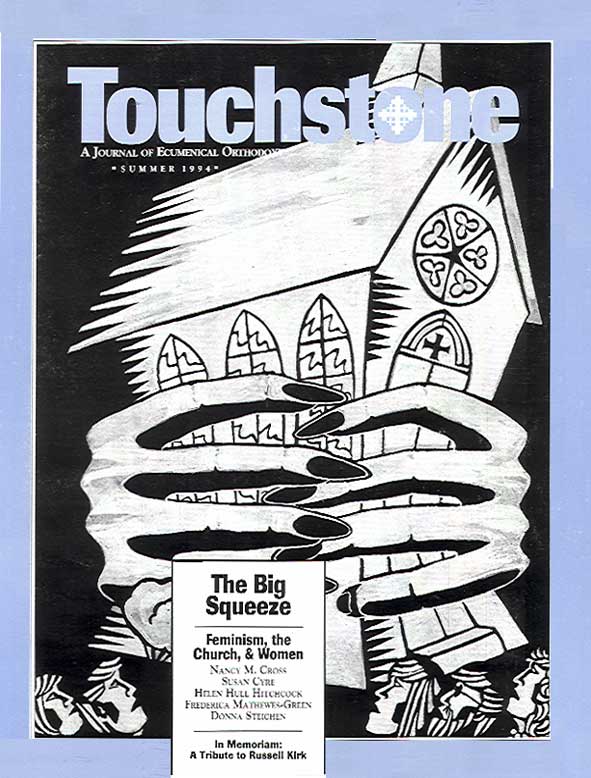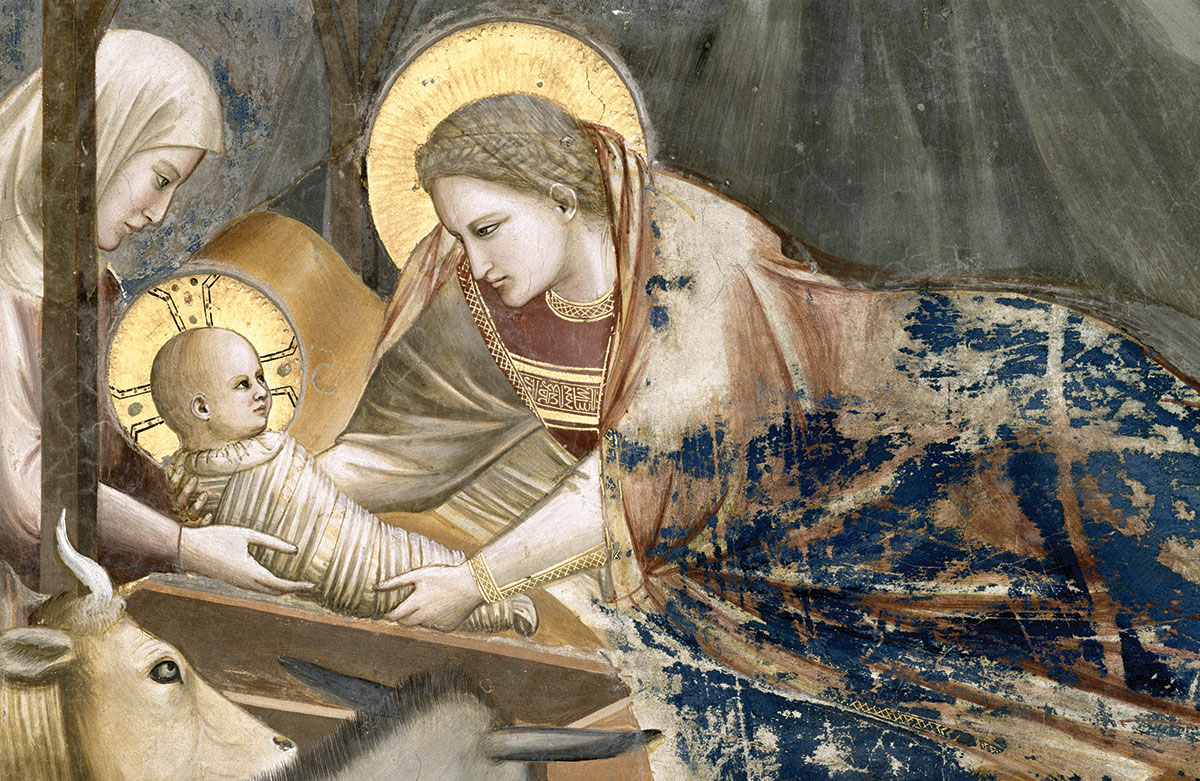Entrusted to Woman
The Challenge & Mission of Christian Women Today
by Helen Hull Hitchcock
No one would deny that Christian believers—especially women—face serious challenges today. Our faith challenges us to accept our mission as believing Christians living in a culture and in an age which is openly hostile to the fundamental tenets of our faith. It also requires that we meet those challenges to our faith that we will most certainly encounter with wisdom and with responsibility.
But challenges to our faith do not come only from the world outside Christianity—the “Areopagus,” as Pope John Paul II calls it in his encyclical on the Mission of the Church, Redemptoris Missio. In fact, one of the identifying features of the current period of Christian history is that a tremendous confrontation is coming— not from atheists, or pagans, or members of other religions—but from within the Church itself. Church life today is marked by the prevalence of dissent, the divisions and disunity which dissent brings, and the rejection of perennial Christian truths and essential Christian beliefs by people who describe themselves as Christians. All Christian bodies have been affected by this phenomenon. Persecution from outside can have the effect of strengthening faith: but dissension within divides and disperses its energy, and ultimately destroys faith.
It is not only or even primarily, of course, the smooth functioning of the Church as an institution which concerns us most deeply in the midst of this dissent; but also the Church as the Body of Christ comprised, as St. Paul tells us, of individual persons—of each believer. The souls of an entire people, of an entire age, are put in jeopardy by this kind of dissent.
The challenges to Christian women today loom on both fronts: inside and outside the Church. The challenge from outside may be described as cultural, and it confronts the family. The challenge from inside the Church is theological, and the most significant theological controversy is that of feminism. Christian women are called to face both the cultural challenge to the family and the feminist challenge to their faith in fulfilling the challenge of their overall mission as Christians.
The Challenge of Culture & Family
The family as the “fundamental cell of society” is the key to culture. The family is the essential link connecting the past with the future. Each family provides a living connection between inherited traditions and the future which we are in the process of creating. Indeed, a principal function of the family is to transmit received culture (including religious beliefs and moral principles) to their children, the new generation of the world’s inhabitants. If the family is weakened or broken—if this link, this umbilical cord, this connection which provides its dynamism, which nourishes it and gives it life and brings the wisdom of past centuries to birth in the living present, is severed—no culture can survive.
In our time, maintaining a vital connection to the past is made difficult for many reasons (e.g., social mobility, wars, ideological revolutions, secularization, and so forth). In our society the very process of change in itself has come to be seen as both natural and inevitable (which it is) and an unqualified good (which is debatable). The point of Christianity (and of atheistic ideologies, as well) is to affect the way in which things change.
In traditional Christian thought, change —conversion—which draws man closer to God is good. Those changes which do not, or which, in fact, lead away from God, are not. The conversion process—the means by which we become Christians—is secondary to the result. If we hope to evangelize society, if we hope to effect the conversion-for-the-good, we have to give our attention to what we hope to achieve by it. And this consideration will lead to different conclusions for Christians than for non-Christians and non-believers.
There can be no culture without faith—a body of beliefs held in common. Culture, by definition, demands a coherent worldview which its members understand and to which they give not only assent but also expression. This expression may be through literature, music, architecture, fine art, philosophy, social science, education, or politics. Authentic expression of culture is bound to reflect “cultural norms”: that is, those beliefs and moral and ethical principles which are (or have been) generally accepted by the members of a social group or society. Otherwise the expression cannot be an authentic manifestation of the culture.
subscription options
Order
Print/Online Subscription

Get six issues (one year) of Touchstone PLUS full online access including pdf downloads for only $39.95. That's only $3.34 per month!
Order
Online Only
Subscription

Get a one-year full-access subscription to the Touchstone online archives for only $19.95. That's only $1.66 per month!
bulk subscriptions
Order Touchstone subscriptions in bulk and save $10 per sub! Each subscription includes 6 issues of Touchstone plus full online access to touchstonemag.com—including archives, videos, and pdf downloads of recent issues for only $29.95 each! Great for churches or study groups.
Transactions will be processed on a secure server.
more from the online archives
calling all readers
Please Donate
"There are magazines worth reading but few worth saving . . . Touchstone is just such a magazine."
—Alice von Hildebrand
"Here we do not concede one square millimeter of territory to falsehood, folly, contemporary sentimentality, or fashion. We speak the truth, and let God be our judge. . . . Touchstone is the one committedly Christian conservative journal."
—Anthony Esolen, Touchstone senior editor









